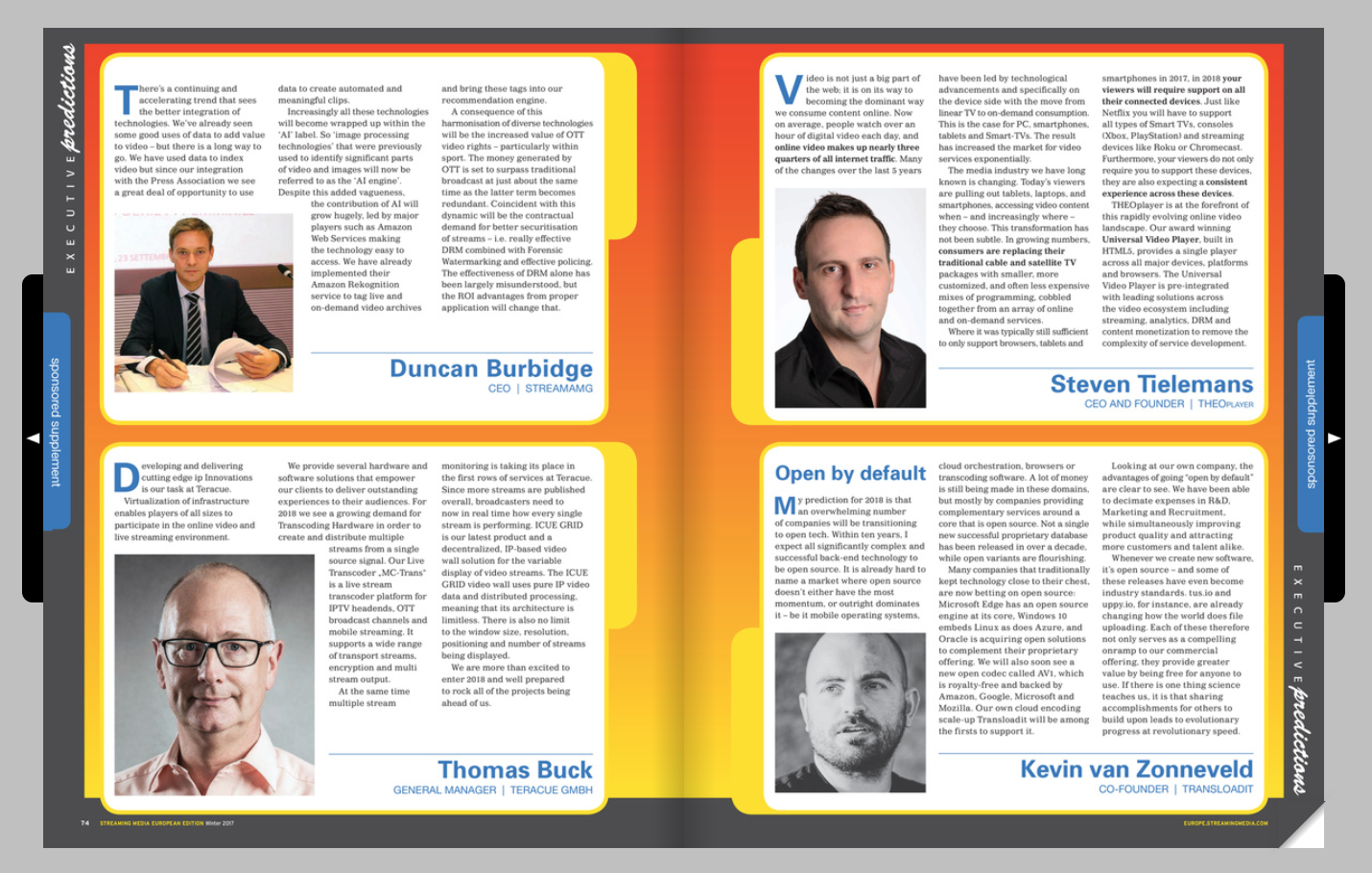Transloadit predicts open tech dominance by 2028
Our prediction was also published in shorter version in Streaming Media's Executive Predictions 2018 (pdf).

When I think about 2018, one of my predictions is that we will see an overwhelming number of companies transitioning to open tech. Within ten years, I expect all significantly complex and successful back-end technology to be open source. It is already hard to name a market where open source doesn't either have the most momentum, or outright dominates it. This holds true whether you look at mobile operating systems, cloud orchestration, browsers or transcoding software. These are all domains where a lot of money is still being made, but mostly by companies that manage to provide complementary services around a core that is open source.
Many substantial players on the tech market that traditionally kept their technology close to the chest, are now starting to bet on open source. It appears that Microsoft, for instance, has finally seen the light and realizes that open technology can be very beneficial to them. Microsoft Edge has an open source engine at it's core, hosted on GitHub. Windows 10 embeds Linux as does Azure. Oracle is another great example. They are now acquiring open solutions for Virtual Machines and additional databases to complement their commercial offering. As it stands, there has not been a single new successful proprietary database in over a decade, while open source variants are flourishing.
And that makes sense: if your company is choosing its next database, would you rather have an open standard and ecosystem, a sea of developers to pick from who are already familiar with the tech, and the option to purchase support contracts from a number of competing firms? Or would you rather put all those eggs in one basket, thereby placing the fate of your entire business in the hands of a single company. Good luck negotiating that better pricing next year!
Even Apple open-sourced the kernel of iOS and macOS. While it chose to embrace the HEVC codec in their latest releases, in 2018 we will see a new open codec called AV1, which is completely royalty-free and backed by Amazon, AMD, ARM, Cisco, Google, Intel, Microsoft, Mozilla, Netflix, Nvidia, and many more. Transloadit has already pledged to be one of the firsts to roll out support for it.
Looking at our own company, the advantages of going "open by default" are clear to see. Ever since we launched in 2009, we have had the policy that when we create new software, it should preferrably be open source. We can opt out, but there have to be very good reasons to do so. It helps us counter the instinct to protect and hide the valuable things we create. By now, most of our software is open source, and some of those releases have even become industry standards. tus and Uppy, for instance, are already changing how the world does file uploading. These products therefore not only serve as robust building blocks and compelling onramps to our commercial offering, they also provide greater value by being free for anyone to use. If there is one thing science teaches us, it is that sharing accomplishments for others to build upon leads to evolutionary progress at revolutionary speed.
It may, of course, feel counterintuitive to give away the IP that you worked so hard to build. It is certainly easier to measure how much resources are "thrown away", than it is to determine the exact benefits of going open source. However, some of these advantages have been of the so-called "Zero To One" variety, where we have to wonder whether we could have had any success at all without them.
- Attracting talent: many companies have a hard and costly time recruiting good developers, while we get way more applicants than we can handle, just by asking around in our open projects.
- Security: as a direct result of the great contacts we have built up through our open source projects, Transloadit's code has been scrutinized by engineers from tech giants such as Google, Vimeo and Yahoo.
- Marketing: we have been able to sign up enterprises because our technology is brought in through the backdoor by the developers that know us by reputation.
- Raw development power: many more developers are working on our software than we would be able to keep on our payroll at this point.
If we had to pay for these R&D, Marketing, and Recruitment advantages, it suddenly becomes clear that by giving away our tech, we have received success that we would otherwise not have been able to afford without taking investments. My prediction for the future is that more companies will start seeing these benefits. I believe that 2018 will be regarded as a turning point and in 10 years, proprietary software will merely serve as the adhesive to bring open tech and services to the masses.
